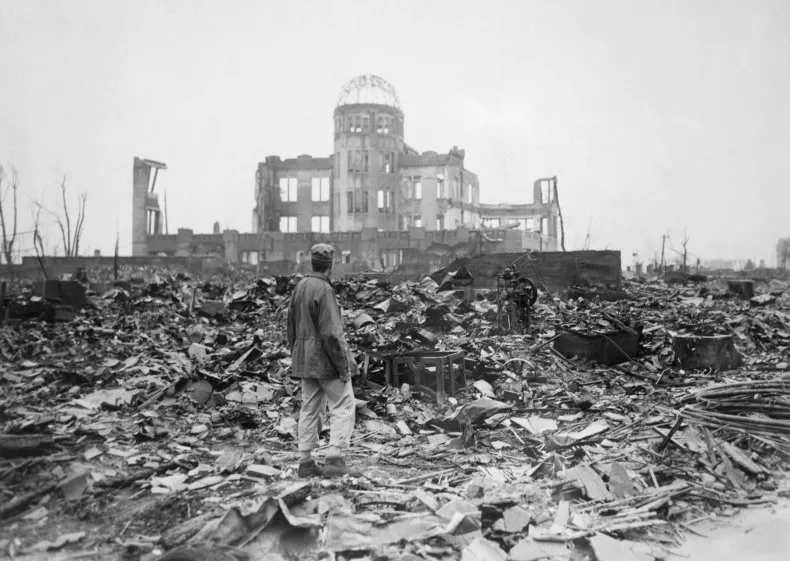Paragraph 1: The 80th Anniversary of Hiroshima and the Resurgence of Nuclear Fear
Eighty years ago, on August 6, 1945, the United States dropped an atomic bomb on Hiroshima, Japan, unleashing an unprecedented level of destruction and ushering in the nuclear age. This act, which resulted in the immediate deaths of at least 140,000 people and left countless others to suffer the long-term effects of radiation sickness, remains a stark reminder of the devastating power of nuclear weapons. The 80th anniversary of this tragic event serves as a poignant reminder of the human cost of war and the ongoing threat posed by nuclear weapons. As the world commemorated this somber anniversary, a renewed sense of urgency arose surrounding the growing global nuclear threat.
Paragraph 2: The Hibakusha’s Plea for Nuclear Abolition
The hibakusha, the survivors of the atomic bombings of Hiroshima and Nagasaki, have been tireless advocates for nuclear abolition. Their firsthand accounts of the horrors they endured serve as a stark testament to the devastating humanitarian consequences of nuclear weapons. Nihon Hidankyo, a grassroots organization of atomic bomb survivors and Nobel Peace Prize laureate, voiced their growing concern over the increasing acceptance of nuclear weapons as deterrents. Their message underscores the imperative to break through the indifference of nuclear-armed states and foster a global commitment to nuclear disarmament. Their dwindling numbers underscore the urgency of their mission to eliminate nuclear weapons before their experiences fade from living memory.
Paragraph 3: The Growing Global Nuclear Threat
The current international landscape presents a complex and concerning picture regarding nuclear weapons. The resurgence of great power competition, regional conflicts, and the erosion of arms control treaties have contributed to an environment of heightened nuclear risk. The modernization of nuclear arsenals by several countries, coupled with the development of new and more sophisticated weapon systems, further exacerbates these concerns. The potential for miscalculation or accidental use of nuclear weapons remains a constant threat that requires urgent attention from the international community. The hibakusha’s warnings about the growing nuclear peril resonate even more strongly in this context.
Paragraph 4: The Challenge of Nuclear Disarmament
Achieving a world free of nuclear weapons remains a formidable challenge. The entrenched interests of nuclear-armed states, the perceived security benefits of nuclear deterrence, and the complex political and technical aspects of disarmament pose significant obstacles. Overcoming these challenges requires a concerted and sustained effort by all nations, including a renewed commitment to multilateralism and arms control negotiations. The hibakusha’s plea for a nuclear-free world calls for a fundamental shift in global thinking about security, moving away from reliance on nuclear weapons towards cooperative security arrangements.
Paragraph 5: Commemoration and International Participation
The 80th anniversary of the Hiroshima bombing saw unprecedented international participation, with representatives from a record 120 countries and regions attending the memorial ceremonies. This widespread attendance signifies a growing global awareness of the dangers of nuclear weapons and a shared desire to prevent their use. The inclusion of Russia and Belarus, despite the ongoing geopolitical tensions, further highlights the universal nature of the concern surrounding nuclear weapons. The observance of a minute of silence and the ringing of the peace bell serve as symbolic gestures of remembrance and a collective commitment to peace.
Paragraph 6: The Legacy of Hiroshima and the Path Forward
The bombing of Hiroshima remains a deeply ingrained part of human history, serving as a constant reminder of the devastating consequences of nuclear war. The hibakusha, through their resilience and unwavering advocacy, have transformed their personal tragedies into a global call for peace and nuclear disarmament. Their legacy underscores the importance of remembrance, education, and continued dialogue on the dangers of nuclear weapons. The international community must heed their call and work together to create a world free from the threat of nuclear annihilation, ensuring that the horrors of Hiroshima and Nagasaki are never repeated. This requires not only strengthening international treaties and arms control mechanisms but also fostering a culture of peace and understanding among nations.


